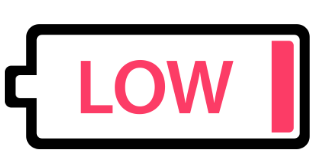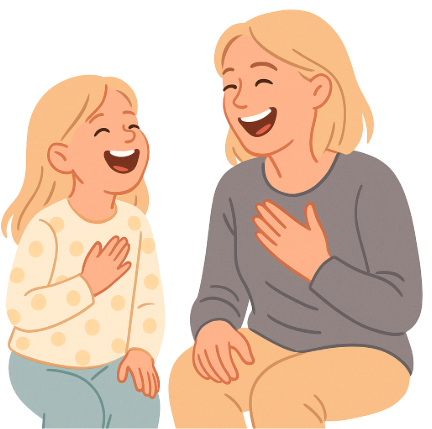Why Self-Care Is the Best Gift You Can Give Your Child
- Nada Johnson

- Aug 14, 2025
- 4 min read
Updated: Aug 15, 2025
Why putting yourself last isn’t helping your kids—and how caring for your own well-being can transform theirs.
You skip meals so they can eat on time.
You stay up late finishing chores so they can wake up to a smooth morning.
You put off your own rest, hobbies, or appointments because “the kids come first.”

At first, it feels like love. Like devotion.
But over time, you feel stretched thin, running on fumes, and maybe even resentful.
Here’s the truth many mothers struggle to accept:
Neglecting yourself doesn’t make you a better parent—it often does the opposite.
At Nada Johnson Consulting & Counselling Services (NJCCS), I work with mothers who feel constantly drained, guilty about taking breaks, and unsure how to prioritize themselves without feeling selfish. What we discover together is that self-care is not just for you—it’s a gift for your children too.
How Neglecting Yourself Impacts Your Child

When you’re running on empty, it doesn’t just affect you. Research shows that parental stress, exhaustion, and burnout can lead to less patience, more irritability, and reduced emotional availability for your children (Mikolajczak et al., 2018).

You might notice:
💔 Snapping over small things
💔 Feeling detached or “numb” around your kids
💔 Trouble enjoying family time
💔 Guilt for not being the parent you want to be
Children are sensitive to your emotional state—even if you try to hide it. They learn not just from your words, but from your energy, your habits, and how you treat yourself.
Why Self-Care Benefits Your Children Too

When you take care of yourself, you’re not only replenishing your own energy—you’re also teaching your children powerful life lessons. Through your example, they learn that:
➡️ Needs matter—their own and the needs of others deserve attention and respect
➡️ Rest is essential—not something you have to “earn”

➡️ Asking for help is a strength—not a sign of weakness
➡️ Joy and play have value—even for grown-ups
In other words, your self-care becomes their blueprint. When they see you set boundaries, prioritize your well-being, and make space for what lights you up, you give them permission to do the same in their own lives.
Practical Ways to Prioritize Yourself Without Guilt

🌿 Schedule “non-negotiable” time for you – Even 15 minutes to walk, read, or simply be still can reset your energy.
🌿 Say yes to support – Accept help from family, friends, or services without apology.
🌿 Model emotional honesty – Share, in an age-appropriate way, when you’re tired or need a moment. This normalizes emotional awareness.
🌿 Reconnect with your identity – Remember, you’re more than “mom.” Make space for activities that remind you who you are outside of parenting.
🌿 Set boundaries without guilt – Protect your energy so you can give from overflow, not depletion.
Let Go of the “Perfect Mother” Myth

You are not a better mom because you run yourself into the ground. You’re a better mom when you’re grounded, rested, and able to show up with patience and love.
Self-care isn’t selfish—it’s a vital part of parenting. And if you’ve been putting it off, this is your reminder: caring for yourself is caring for your child.
NJCCS Is Here for You
At NJCCS, I offer counselling for mothers navigating burnout, guilt, and the pressure to “do it all.” Together, we can create:
🌿 Strategies to balance your needs with your child’s
🌿 Tools to reduce stress and overwhelm
🌿 Space for you to process your emotions without judgment
🌿 Plans to strengthen your family’s emotional health
Because when you care for yourself, you give your children the gift of a calmer, more present, and more joyful you.
With warmth,

Nada Johnson, MSW, RSW
Registered Social Worker, Psychotherapist / trained Family Mediator / EMDR Trained Therapist / Certified Racial Trauma Clinician / Mental Health & Sexual Violence Consultant / Professional Speaker

🌍 Website: www.nadajohnsonservices.com
📩 Contact: info@nadajohnsonservices.com
Nada Johnson Consulting & Counselling Services – Online phone and video sessions available
Village Healing Centre: 240 Roncesvalles Avenue
Follow our platforms for empowering content, parenting support, and mental health tools. Please share this post to support other mothers raising neurodivergent children; they deserve care too. 🤝
References
Mikolajczak, M., Gross, J. J., & Roskam, I. (2018). Parental burnout: What is it, and why does it matter? Frontiers in Psychology, 9, 886. https://doi.org/10.3389/fpsyg.2018.00886
Mikolajczak, M., Raes, M. E., Avalosse, H., & Roskam, I. (2018). Exhausted parents: Sociodemographic, child-related, parent-related, parenting, and family-functioning correlates of parental burnout. Journal of Child and Family Studies, 27(2), 602–614. https://doi.org/10.1007/s10826-017-0892-4
Roskam, I., Raes, M. E., & Mikolajczak, M. (2017). Parental burnout: The construct validity of the Parental Burnout Inventory (PBI). Frontiers in Psychology, 8, 163. https://doi.org/10.3389/fpsyg.2017.00163

Want More Support for Your Professional & Personal Growth?
🔷Try Potential Unlocked™🔷
In addition to counselling, NJCCS offers coaching through our sister brand, Potential Unlocked™, designed specifically for professional women navigating career, leadership, and life transitions.
We support clients with:
Communication and conflict strategy in the workplace
Career development and leadership coaching
Navigating workplace dynamics and burnout recovery
Building confidence in both personal and professional relationships (Online dating empowerment coaching, because personal growth impacts professional life too!)
👉 Visit www.potentialunlocked.ca to learn more or book a free 10-minute consultation call.



Comments